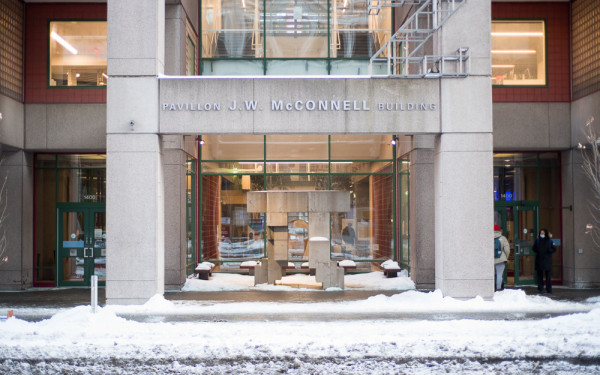The fight against tuition hikes must continue
The provincial government continues to attack anglophone students under the guise of protecting the French language
In October 2023, the provincial government proposed what seems to be a mean-spirited attempt to hinder the admission rates at English universities in Quebec, under the pretense of protecting the French language.
Following the proposed tuition hike for out-of-province and international students looking to study at anglophone universities in Quebec, the response from the student population in Montreal was swift and direct.
The students in Montreal protested this vehemently during the last academic year. However, students must continue to advocate in opposition to this tuition hike in synchronicity with the legal action being taken by Concordia and McGill University. As legal action is a lengthy process, sitting idly by would only serve complacency.
During the Winter 2024 semester, thousands of students from Concordia and McGill took to the streets to protest, conducted boycotts, urged administrative action and made their voices heard.
But consistency is key. We must not take the first implementation of this tuition hike as a sign of defeat. Student protests and activism have proven repeatedly to be effective in matters of social austerity. A notable example are the Maple Spring protests in 2012, which ended with a successful halting of proposed tuition hikes after the next Premier was elected.
Over a decade later, governmental policies targeting university students persist. However, a key difference between the current situation and that of Maple Spring is that this tuition hike is an attack on anglophone, out-of-province and international students.
In looking at the success of Maple Spring, it’s important to note that gradual progression contributed to its effectiveness. It took time, organization and effective communication to rally some 200,000 students to boycott and protest at its peak. Collective action is a marathon, not a sprint.
In the past decade since the Maple Spring, connectivity and means of communication have greatly improved. We, the anglophone student population, must, above all, communicate effectively and coordinate our next move. This can be done through spreading the word on social media, talking with our friends and attending future meetings in solidarity. Our real strength is in numbers.
When looking at the different facets of this issue, it becomes clear how simple this battle truly is. The provincial government and its infamous French rhetoric have once again tread into the infringement of rights territory. There is no evidence to support that discouraging prospective English students from studying in Quebec serves to protect the French language.
The provincial government has even made exceptions to the language law for international companies based in Montreal to not hinder operations. The irony. They are enforcing rules under an ideological rhetoric of apparent dire importance, yet bending said rules once the real-world effects demonstrate nothing but a hindrance.
One of the key attractions of this beautiful city is its diverse culture and wide variety of people with many coming to Quebec to learn the French language and to appreciate its beauty. Because it is, in fact, beautiful.
The austerity, absurdity and foolishness of this rhetoric lie in the notion of protecting a language that is not threatened by anglophone universities. Raising tuition and targeting young intellectuals serves no benefit to society and does absolutely nothing for the preservation of the official language of the province. We must not allow this to continue.
This article originally appeared in Volume 45, Issue 1, published September 3, 2024.







